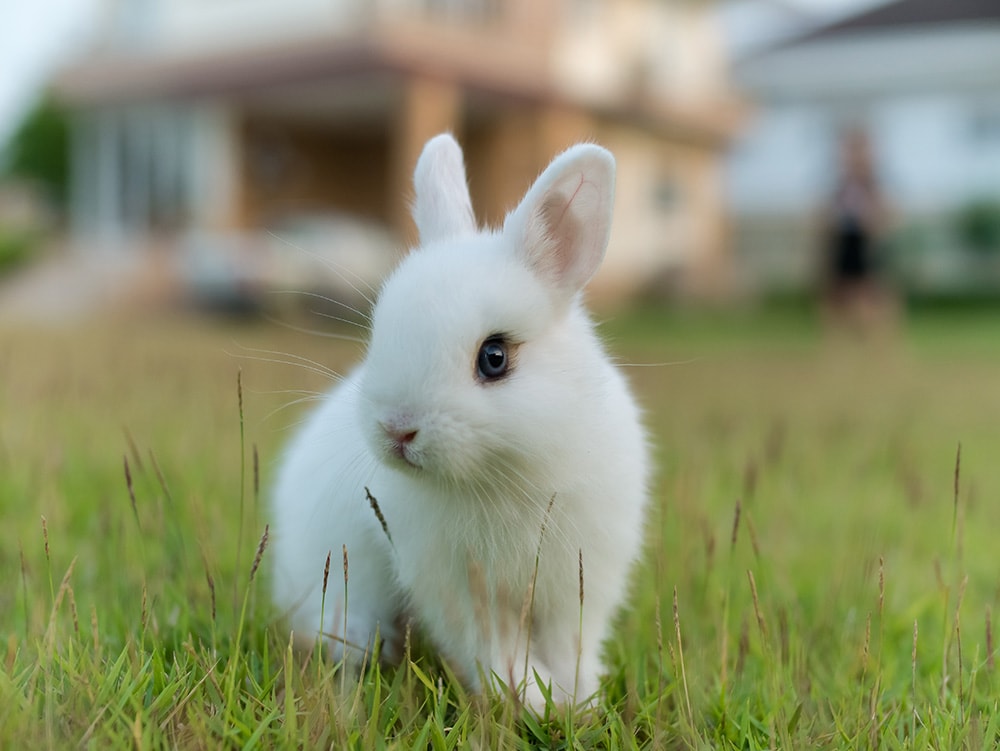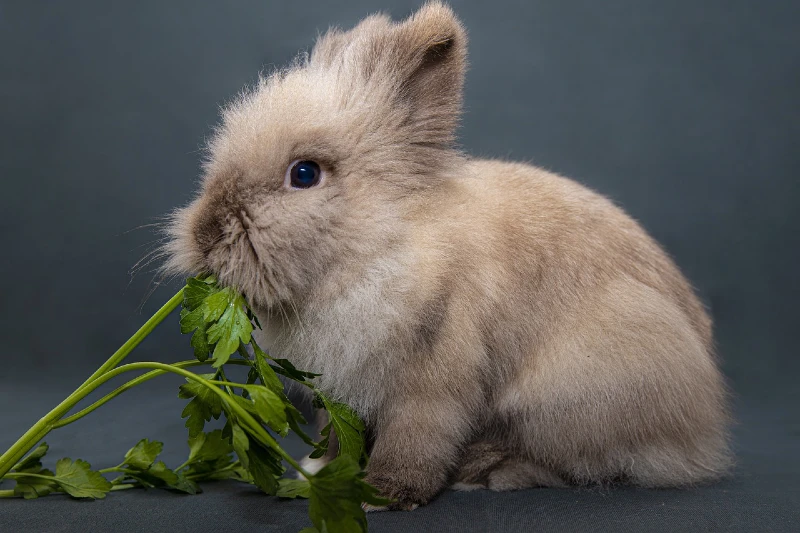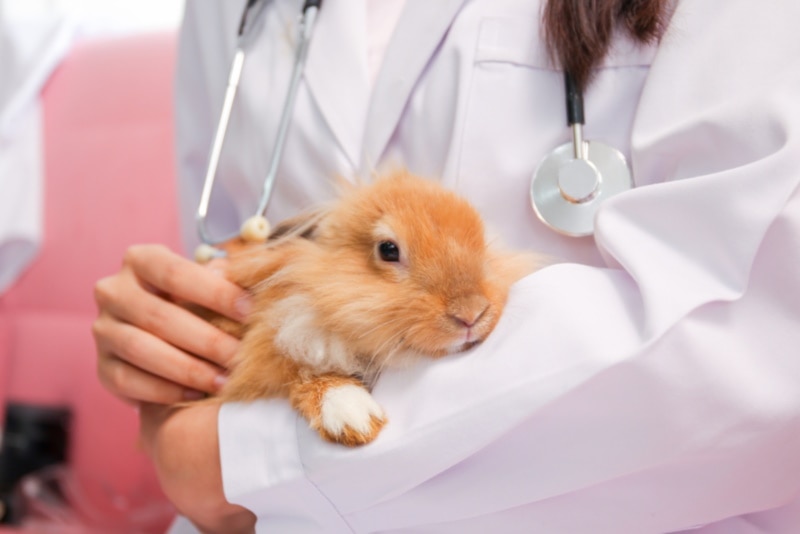
Did you smell that? If you do smell something similar to a fart and you have a rabbit in the room, they might be the culprit. Rabbits are incredibly gaseous creatures, and while it’s usually not anything to worry about, you should be aware of how their body works. That way, if something out of the ordinary pops up, you can address it and keep your rabbit happy and healthy.
With that in mind, we’ll break down everything you need to know about rabbit farts for you here, including what you can do to help and when you should worry!

Why Do Rabbits Fart?
Rabbits are mammals, but they have a complex gastrointestinal system compared to other mammals like dogs and cats. They are specifically designed to absorb the maximum amount of nutrients from the foods they eat, which includes consuming some of their own feces in a process called cecotrophy that allows them to re-process nutrients that weren’t absorbed the first time.
Throughout this process, a lot of gas is produced that has to be released. Due to the anatomy of a rabbit’s stomach, they can not burp, meaning the gas has to be released out of the anus, otherwise known as a fart. If that gas isn’t released, it would build up in the GI tract, creating a lot of pressure.


The 4 Ways to Help Limit Rabbit Farts
While rabbit farts are perfectly natural, there may be times when you’ll want to limit or change the overall odor or volume. You’ll never eliminate them entirely, and be sure to speak to your vet before making any changes to your rabbit’s diet or environment.
1. Diet
Some foods produce more gasses than others, so if your rabbit is particularly gassy, limiting these foods may help. Some extra gassy foods include: grains, corn, legumes, and human foods like cereal or bread.
While a little bit of these foods won’t be detrimental to your rabbit, they can cause some discomfort, and may make your rabbit a bit gassier.

2. Hydration
Your rabbit should have access to clean water inside their cage at all times. Adequate water is important for the process of digestion and may help cut down on some of the gas production.
3. Slowing Down Food Consumption
If you notice your rabbit scarfing down their food as fast as they get it, it could lead to more gas buildup. This happens when they swallow more air than they should while eating, which is more common when eating quickly. Give your rabbit their own eating area and offer them regular meals throughout the day.

4. Limiting Stress
Just like extra stress can make us a bit gassier, the same is true for rabbits. If you meet all their needs and raise them in a stress-free environment, you should be able to limit the amount of gas they pass.

When Should You Worry About Rabbit Farts?
Most of the time, you don’t need to worry if your rabbit is a little gassy. However, if they are passing a ton of gas and exhibiting any of the following signs, you’ll want to take notice and take them to a vet for further treatment.
Lack of Activity
If your rabbit isn’t moving around much, it could be that a gaseous buildup is making movement uncomfortable or even painful. But since moving can help them pass the gas, the lack of movement can actually make the problem worse, and you’ll likely need to intervene to help it get better.

Bubbling Sounds
If you place your ear to your rabbit’s stomach and hear bubbling sounds, this could be a sign that there’s an excessive amount of gas and you should reach out to their vet to see what you should do next.
Loss of Appetite
You know how much your rabbit likes to eat, and if you notice a drastic shift towards them not eating, this could be a sign of an underlying problem. If you can’t figure out the problem and how to fix it on your own, you’ll need to take them to a vet for diagnosis and treatment.


The 3 Ways to Help Your Rabbit Pass Gas
While you might need to take your rabbit to the vet if they have too much gas and can’t pass it, there are a few things you can try at home first. These tips can help get your rabbit some instant relief, which is all they’re really looking for.
1. Massage
One of the most effective ways to help give your rabbit some relief is to massage their belly. Gently press your fingers along your rabbit’s abdomen, moving them up and down to try and relieve the pressure along your rabbit’s digestive tract.
2. Getting Them Moving
If your rabbit isn’t in too much pain, they should still want to move around some, and the more they move, the more likely it is for them to pass gas. Once they pass some gas, the pressure should ease up a bit, allowing for more movement.

3. A Trip to the Vet
If you’ve tried massaging your rabbit and you’ve tried getting them moving and it simply isn’t helping, you’ll need to take them to the vet.

Final Thoughts
Now that you know a little more about a rabbit and their farts, you can make an informed decision about what’s normal and when you need to take them to the vet if they can’t get the relief they need. It might not be the most fun topic out there, but when it comes to keeping your rabbit comfortable and happy, it’s an important one!
Featured Image Credit: Preediwat, Shutterstock


